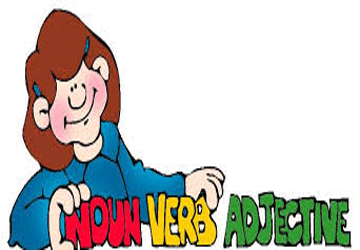 One
One day, I
wined with myself,
bedded with some beautiful thoughts, and
lucked into writing about my view that
toyed with nouns,
verbing them into newer embodiments, and
flooding them into the never seen before channels. I wondered about the number of times I use nouns as verbs, in English, in Hindi, and in our very own Hinglish. Don’t I
google Google,
blog a blog or
facebook an old classmate.
I remembered the rant of a young boy who
texts his father about the mother-she
mothers me,
butters my bread,
buttons my shirt,
laces my shoes,
foots my bills,
bullies my bullies,
shoulders all responsibilities, sometimes even
ubers me to school; this
mommying must stop, this
supermaning must stop, I am a big boy, don’t
sweetheart me, don’t
chocolate me, and don’t
top it with a hug; for if I
word it correctly, I would like to
right all the wrongs myself.
Little boys have already
languaged their thoughts, as I see, so
father them carefully. And girls, little girls don’t
barbie any more, they may
eye your ipad and not your make-up kit, and
proud you with medals you never imagined. The youth is changing, changing in the way they think, in their clothing, eating, reading, and travelling. And changing is their language, sometimes
short-forming words or even sentences, or simply using one part of speech as another such as nouns as verbs, verbs as adjectives or vice versa.
‘Antimeria’ derived from the Greek: ‘anti’ meaning against or opposite and ‘meros’ meaning part, is the usage of a word in a new grammatical form, one part for another, commonly a noun being used as a verb.
Verbing is not very new. It is using nouns or other parts of speech as verbs, new words carved out of old ones, simply a simple play of words. A slang, an ease for everyday use, the lingo of a common man or more technically, a grammar conversion, a functional shift or a cultural innovation, whichever way it is defined, a simple addition of -ed, -ate, -ing etc. can turn a noun into a verb.
And most of the times, the noun, the unchanged original noun, is itself used as a doing word… no permission solicited from the higher echelons of the literary world. Such is today’s language… totally condescending, nonchalant or just an enviable fast evolving phenomenon. It may be hard to accept that literature is so fluid, and it flows with the trend. And yet some pieces of grammatical transition may be a work of beauty and worthy of recognition.
Bob Dylan, the popular singer and a songwriter, was awarded the Nobel Prize for Literature. It raised many eyebrows in the literary world but it did signal a change, and announced an evolutionary milestone. “The Times They Are a’Changing”, yes, they are. Evolution is all about changing, about creativity, the creativity of need. Language reflects the way our culture is evolving, the way we are changing our lifestyle, the way we communicate with others, and sometimes with ourselves.
The everyday communication has to be simple, easy and flexible, something that is easily exchanged, understood and correctly interpreted. Words that are born out of necessity and ease, eventually
home in the lexicon of contemporary literature. Is it not true that someone made up each word at some point, and over a period of time and usage, all such words together were called ‘dictionary’? When fashion changes so rapidly, cuisines are modified routinely, music is remixed all the time, why would literature not change with time? From local to metropolitan to cosmopolitan, the digital power has shrunk the world and brought fashion, food, music, and languages together, giving them a universal platform and acceptance.
Everyday new words are made up, each one of us reinventing our lingo. Most of the times the intent is to make the communication convenient, and sometimes this connect is just
jazzed up, for no real good reason. We
pride ourselves in remodeling words,
gadgeting some and tampering with the others. We play around with the different parts of speech, the nouns, the verbs, and the adjectives, using one for the other. We tinker with the delicateness of punctuation, often moving our commas, colons, and hyphens to completely change the essence and meaning of the sentence,
to-ing and
fro-ing between parts of speech.
Dabbling in language refashioning is fun. It is a move forward. It would transform the way we think, and the way we relish our changing art.
Verbing is one such move.
Verbing is in. The nouns are flirtatiously
verbed and repeatedly
emailed, texted, typed, blogged, whatsapped, and
hashtagged. If you are not entranced by the mystique of it yet, just ‘
Google’ it!
- The author is Lead Consultant Anesthesia, Madhukar Rainbow Children's Hospital, New Delhi
 One day, I wined with myself, bedded with some beautiful thoughts, and lucked into writing about my view that toyed with nouns, verbing them into newer embodiments, and flooding them into the never seen before channels. I wondered about the number of times I use nouns as verbs, in English, in Hindi, and in our very own Hinglish. Don’t I google Google, blog a blog or facebook an old classmate.
One day, I wined with myself, bedded with some beautiful thoughts, and lucked into writing about my view that toyed with nouns, verbing them into newer embodiments, and flooding them into the never seen before channels. I wondered about the number of times I use nouns as verbs, in English, in Hindi, and in our very own Hinglish. Don’t I google Google, blog a blog or facebook an old classmate. 